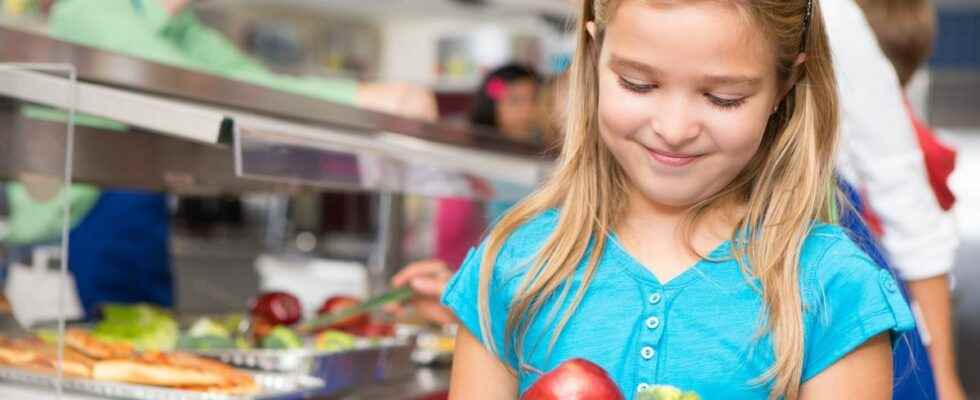Published on
Updated
Reading 2 mins.
Do schoolchildren consume responsibly when they eat in the canteen? The Max Havelaar association conducted the survey by interviewing parents, but also their child(ren). And the survey reveals a well-established awareness among children and teenagers, in particular to defend the income of the producers who supply their canteen.
What do we eat in school canteens? A question explored by the Max Havelaar association which has just unveiled the fourth edition of its annual barometer on sustainable diets. Conducted by OpinionWay, the survey interviewed 520 children aged 7 to 17 and 619 parents.
One of the first findings to emerge is that, while 63% of parents assume that the content of the plates served in the canteen where their children have lunch is responsible, the latter are not certain on the subject. “This can be explained by the lack of communication from establishments in this respect: almost a third of parents do not know whether their child’s canteen offers local products (27%), made in France (31%) or even from fair trade (37%)“, comment the authors of the survey. Postulate that the parents confirm: 32% believe that the school of their child (ren) does not communicate enough on this aspect, while 18% confirm, on the contrary, to benefit information provided by schools via their website or poster campaigns.
Above all, parents expect their children’s school canteens to offer more local products (56%), grown in France (38%) fresh and unprocessed (48%). The latter also seem to be aware of the existence of the EGalim law promulgated in 2018 and which, since January 1, 2022, has required public collective catering establishments to offer at least 50% sustainable and quality products, including at least 20 % of organic products. A device to which the majority of parents say they are in favor… provided that the canteen prices remain the same! In this context of crisis and inflation, 65% of parents surveyed say they are more sensitive to prices: more than one parent in ten would consider putting their children in the canteen less often (13%). But 25% would rather lean towards innovative alternatives so as not to pay more, in particular the rationalization of the quantities purchased, which at the same time makes it possible to limit food waste.
On the children’s side, awareness of the issues related to sustainable food also seems to be gaining ground: for example, 36% are aware of the positive social and environmental impact of local products (although 73% are unaware that most of the chocolate they eat involves the work of other children). But it is the issue around farmers’ incomes that seems to worry the toddlers the most: 94% say it is a central subject. Some of them even say they are ready to mobilize to defend this cause. Among 7-10 year olds, 51% would not hesitate to write to the President of the Republic if they learned that the producers of the food they eat in the canteen work in poor conditions or do not earn enough money! True to their generation, the teenagers surveyed (15-17 years old) would prefer to go through TikTok or Snapchat to support this cause.
